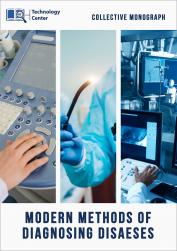Endoscopic retrograde cholangiopancreatography
Keywords:
monitoring, diagnostics, nervous system, basic nervous processesAbstract
Endoscopic retrograde cholangiopancreatography (ERCP) is a contrast study of the bile ducts and the ductal system of the pancreas (P), achieved by cannulating them with a flexible endoscope and visualizing them with fluoroscopy. The technique also includes a visual assessment of the major duodenal papilla (MDP). ERCP involves not only diagnostic manipulations, but also medical procedures on the MDP, bile ducts and pancreas.
ERCP and its accompanying endoscopic interventions make it possible to diagnose and perform therapeutic interventions in choledocholithiasis, benign and malignant obstruction of the biliary tract, chronic pancreatitis accompanied by obstruction of the pancreatic ducts, and in a number of other conditions and pathologies.

MODERN METHODS OF DIAGNOSING DISEASES
Downloads
Pages
Published
Categories
License

This work is licensed under a Creative Commons Attribution-NonCommercial-NoDerivatives 4.0 International License.

